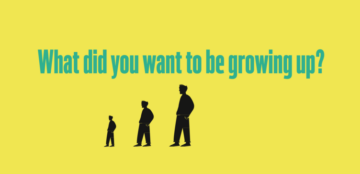I am staying alert.
That’s what I was told to do by my government last night and I have not slept a wink since. Apparently, I have to do this for several months to come.
I am not decrying the latest advice we received, but it did make me wonder that in a period of uncertainty how ambiguous language could help anyone very much. Last night’s broadcast was of course extremely challenging in its need to provide clarity where none was possible. However, it also managed to provide vagueness where some detail was equally possible. It is not easy for our leaders to preside over this scary mess. Equally us cowering and fearful citizens are trying to maintain professional careers blighted by this chaos.
Good word, chaos. From the Greek, meaning ‘void’ or ‘chasm’, itrefers to the state of the world before it was created. Just contemplating our role in this cosmos makes you quite philosophical. (Two more words from Greek of course. There’s more to them than yoghurts you know.)
Philosophy might be what we need. The quest for wisdom can provide us all with a bit of practical guidance in planning our own futures. There are many different schools of thought. Perhaps you should pick one and fortunately, they are all still open.
Are you a Cynic? For the Cynics, the purpose of life is to live in virtue and agreement with nature. People can gain happiness by rigorous training and living in a way which is natural for themselves, rejecting all conventional desires for wealth, power, and fame. A simple life is the order of the day. One of its earliest exponents, Diogenes, lived in a ceramic jar on the streets of Athens, He was followed by Crates of Thebes who gave away a large fortune so he could live a life of Cynic poverty in Athens. The word ‘Cynic’ can be translated as ‘dog-like’ and was a term of contempt for all of its followers who abandoned lovely villas for a basket on the side of the road.
Maybe you are more of a Sceptic? Its etymology can be traced to the words to ‘inquire’ or ‘doubt’. These chaps argued that attempting to understand the world was impossible, causing only anxiety. So, why bother trying? At its most extreme, the philosopher Cratyulus refused to discuss anything and would merely wriggle his finger, claiming that communication is impossible since meanings are constantly changing, a bit like an argument with a teenager. Sceptics suspended judgement based on traditional beliefs in order to progress
Epicureans had more fun on the other hand. They followed Epicurus, a former slave who espoused his wisdom from a lovely gaff called The Garden. He taught his students that fear of death was a waste of energy. If you weren’t frightened, you were more likely to enjoy your time on earth. The point was to make life better and therefore he encouraged his cultish fan-base to explore ways to appreciate their allotted moments in the sun. He preached abstinence and quiet contemplation. They unfortunately took him a bit literally behaving as if at a rave in Ibiza and partying too hard. Indeed, when we call someone an epicurean today, they are likely to enjoy fine wine and a trip to a Michelin star restaurant, which is ironically the very opposite of the principles of its underlying philosophy.
Finally, you could simply be a Stoic. The derivation of this word is Stoa, which was prosaically a painted porch in Athens where philosophers used to meet, especially in a plague lockdown when the coffee shops were shut. Their basic idea was we should only worry about things we can change and try not to get worked up about anything else. Our attitude to what happens is for us to control, even if what happens often isn’t. ‘Put Up and Shut Up’ was their mantra although that not quite how they put it in when they went put pen to papyrus.
So, where do you stand today as you plan the re-emergence of your business into the summer sunshine.
Are you a bit of a Cynic? That would suggest you may have to leave the traditional commercial world and find a way of metaphorically communing with nature breaking all expected rules?
Does Scepticism and its need to inquire and dispute fuel your current plans. Why should it be done that way? Does it have to be the same as it was before? Established principles have shifted.
Perhaps the Epicurean working life is really attractive. This implies you should create something without fear of failure and have great and wild Christmas parties at the same time.
Or finally, maybe you’ll chose a dose of pragmatic Stoicism and not worry about the external and uncontrollable forces you face but focus only on the plans and strategies that you know you can deliver. Ideally, this will be achieved without grumbling and complaining how fed up you are with Zoom.
People spend years at university studying the wisdom of the greats and I have codified their thinking into a few pithy paragraphs. (You’re welcome) I am no philosopher and I don’t even own a toga, but I do proffer this insight into our divided and struggling cosmos.
Have an approach. Adopt a belief in how you are going to get through it and be consistent in incorporating that philosophy into your commercial strategy to get out of lock-down. At the moment we are all frustrated by the lack of clarity in our collective futures. Maybe you can ensure that your attitude and outlook is driven by codified thinking that your followers, sitting at your sandalled feet, will enthusiastically want to tell the world.
I’m off to get a paracetamol. All this deep thinking has made my head hurt.



